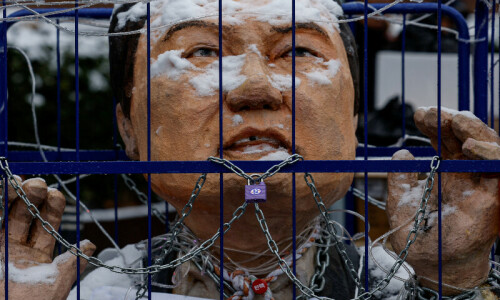ISLAMABAD: A confused captain and a hostile cockpit atmosphere were to blame for the worst ever plane crash on Pakistani soil, when 152 people died, the official report on the disaster said on Wednesday.
Pakistan's Civil Aviation Authority (CAA) said the crew of the Airblue Airbus A321 “violated all established procedures” in trying to circle and land in bad weather at Islamabad's international airport.
The morning flight from Karachi slammed into the Margalla hills overlooking the Pakistani capital in heavy rain and poor visibility on July 28, 2010, killing all 146 passengers and six crew on board.
Captain Pervez Iqbal Chaudhary was “harsh and snobbish” towards his first officer almost as soon as the aircraft took off, the report said, and this continued during the flight.
“After the intermittent humiliating sessions, the first officer generally remained quiet, became under confident, submissive, and subsequently did not challenge the Captain for any of his errors, breaches and violations,” the report said.
Even as the plane was about to crash the first officer, 34, did not take control.
Shortly after takeoff Chaudhary, 61, mixed up Karachi and Islamabad airports and other landmarks, the report said.
“The Captain showed signs of anxiety, preoccupation, confusion and geographical disorientation in various phases of flight especially after commencement of descent,” the report said.
Despite the bad weather and visibility of only 3.5 kilometres (two miles) Chaudhary ignored standard procedure for circling to land, lost visual contact with the airfield and tried to follow his own approach, the report said.
As the aircraft got closer and closer to the hills, the captain became more confused and failed to take evasive action despite 21 audible warnings from the plane's safety systems telling him he was heading for solid ground.
There was no technical problem with the aircraft or evidence of sabotage, structural failure or external impact such as bird strike, the report said, and blame lay with the crew.
“They committed serious violations of procedures and breaches of flying discipline, which put the aircraft in an unsafe condition over dangerous terrain at low altitude,” it said.
The report comes days after a Bhoja Air flight also from Karachi to Islamabad crashed in fields near a village on the outskirts of the capital, killing all 127 people on board.













































Dear visitor, the comments section is undergoing an overhaul and will return soon.